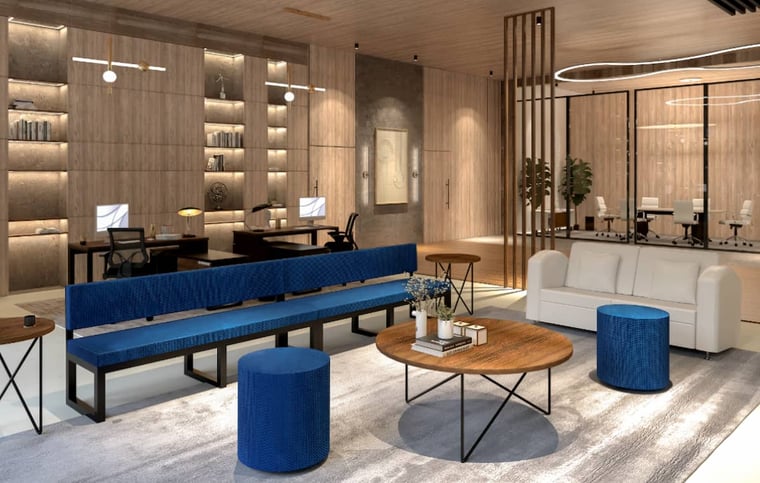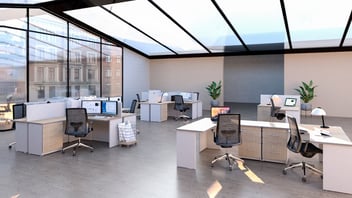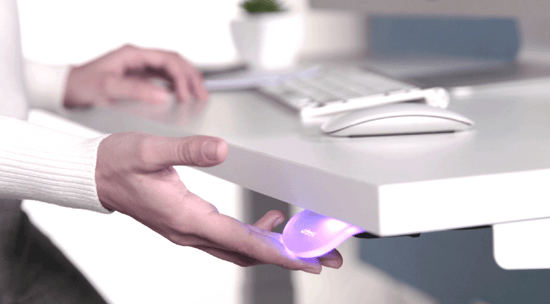Flex Office Trend: What Are They and How to Implement Them?
In an ever-evolving workplace, adaptation is key to success. Nowadays, flexible offices are the trend that is revolutionizing how we work. Do you want to learn more about what they are and how to implement them in your company? Keep reading!
Flexible Offices: What Are They?
.jpg?width=800&height=533&name=oficinas-modernas-ejemplos(4).jpg)
Flexible offices, or flex offices, are workspaces (possibly in buildings dedicated to collaborative areas) designed to adapt to the changing needs of employees. They are like a blank canvas where you decide how to arrange the furniture and what spaces are needed to carry out your activities in the best way possible. They combine open and private areas, collaboration zones, and amenities that enhance productivity and employee well-being.
Characteristics:
- Location: Flexible offices can be located anywhere, from business centers to residential areas. This allows companies to choose the location that best suits their needs without committing to a long-term contract.
- Size: Flexible offices can adjust to the size of the company's workforce, allowing companies to save costs by renting only the space they need.
- Contract Periods: Flexible offices offer flexible contracts, which can be monthly, weekly, or even hourly. This allows companies to tailor their workspace to their changing needs.
- Additional Services: Flexible offices can offer additional services such as meeting rooms, lounge areas, cafeterias, or gyms. This allows companies to provide their employees with a more comfortable and productive working environment.

Benefits of Flexible Offices
By offering diverse work options, flexible offices allow each person to find the environment that best suits their tasks and needs, with the ability to customize the office accordingly.
Companies that adopt this trend demonstrate their commitment to the quality of life of their employees, which attracts talented professionals and maintains their corporate culture.
Companies can quickly adapt to changes in demand and team size, thereby adjusting their costs as well.
Why Choose a Flexible Office Over a Conventional One?
Flexible offices are rental offices. However, they differ from traditional offices in that they offer greater flexibility in terms of location, size, contract periods, and additional services.
In traditional offices, companies typically rent a fixed workspace for an extended period, such as five or ten years. This can be a significant commitment for companies with changing needs. Flexible offices, on the other hand, offer more flexible and shorter contracts, adaptable to your organization's way of working.
Furthermore, flexible offices are often located in a wide range of places, from business centers to residential areas. This allows companies to choose a location that best suits their employees and clients, potentially reducing transportation costs.
In summary, flexible offices are an attractive option for companies of all sizes looking to save costs and constantly readjust. They are the response to a constantly changing work environment. By adopting this trend, your company can increase productivity, attract talent, and effectively adapt to market demands.
At Gebesa, we understand the importance of creating workspaces that adapt to your needs. Our ergonomic and versatile office furniture is designed to provide comfort and functionality to your flexible work environment.

.webp?width=352&name=seguridad-en-computadoras-de-oficina%20(1).webp)



